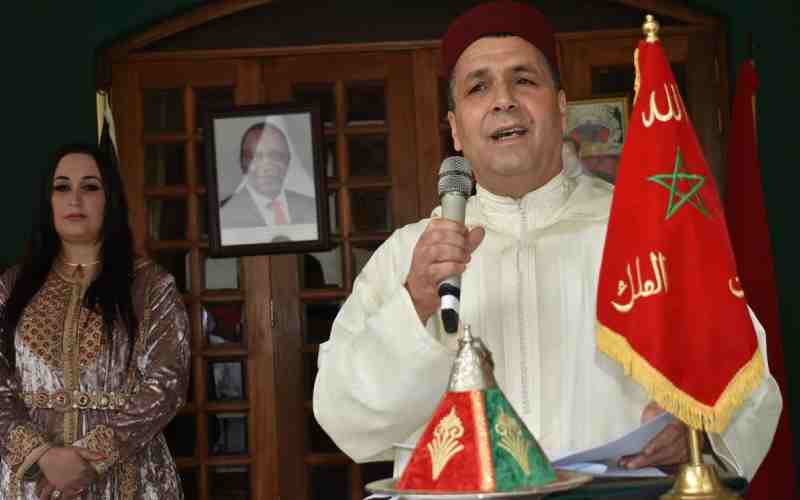×
The Standard e-Paper
Kenya’s Boldest Voice

Moroccan Ambassador to Kenya H.E Mokhtar Ghambou addresses guests during the Throne day at the Embassy, 2019. [Courtesy]
Morocco's Ambassador to Kenya, Dr El Mokhtar Ghambou now says Kenya should reconsider its position recognising Western Sahara as a state.